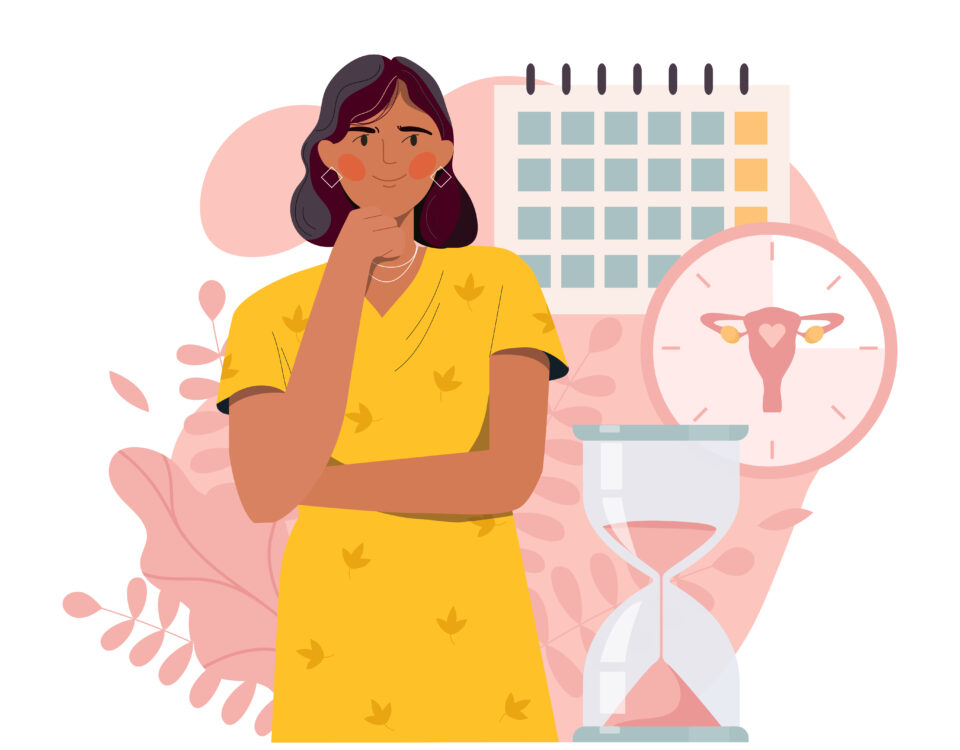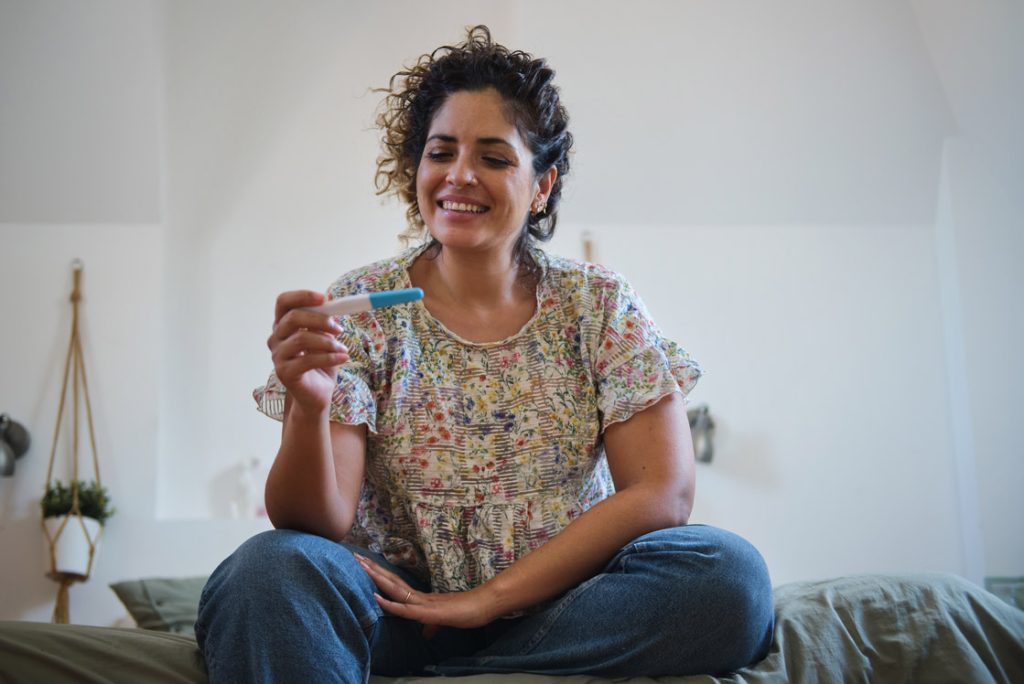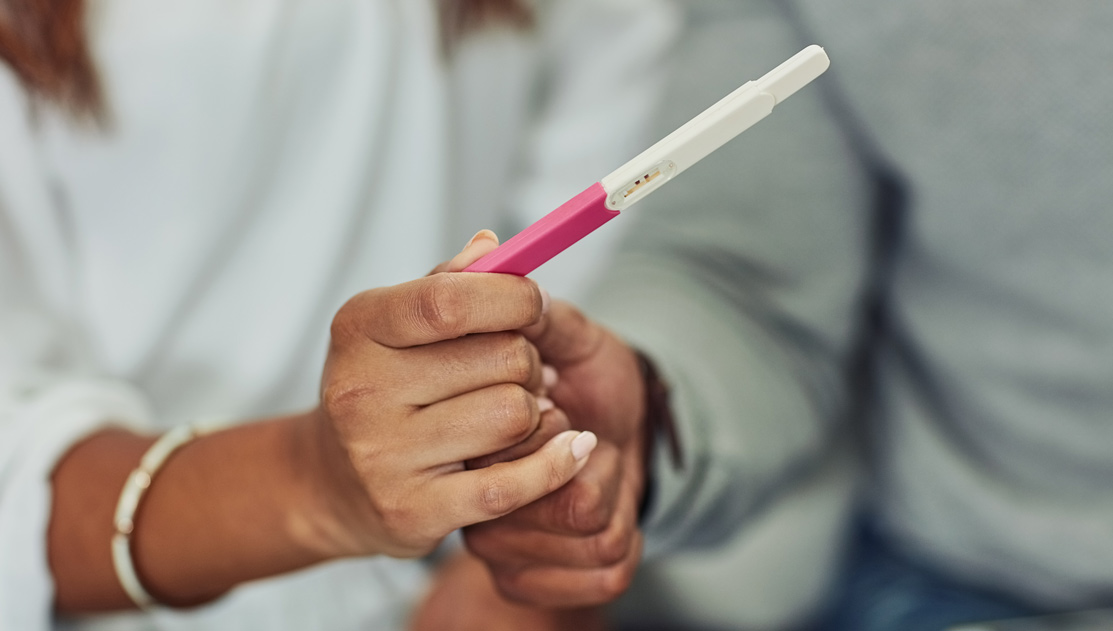If you are wondering about getting pregnant after 35, you may want to know ways to help boost your fertility.
You may have seen conflicting advice and have questions such as: Is it really harder to get pregnant after 35? How successful is pregnancy after 35? How can I help boost fertility in my 30s? Read on for 10 ways to help boost your fertility.
First things first: Is it really harder to get pregnant after 35?
The good news is that most women in their mid to late thirties who want to get pregnant will be able to do so, especially with the help of pregnancy-friendly lifestyle choices.
But it is important to give women the whole picture. Sometimes to look at the internet you might think age doesn’t matter, when we see the joy of older celebrities (who have invested heavily in fertility treatments) having babies well into their forties and in some rare cases even at fifty. At a glance, it may give the impression that the female biological clock no longer exists – but indeed it does. The truth is that while fertility science has been updated, female physiology has not. Fertility declines slowly after a woman hits 30 and that decline steepens somewhat after age 35, becoming sharp in a woman’s forties.
Dr Amin Gorgy, Fertility Consultant at The Fertility and Gynaecology Academy says: “There are certainly things you can do to help your chances of getting pregnant after 35 naturally, and there’s a good chance you’ll succeed in your late 30s. But it is very important not to mislead women. While of course some women do naturally fall pregnant in their forties, unfortunately the majority will struggle. We tell women this so that they can make informed choices about what to do with the time that they have.”
How successful is pregnancy after 35?
Countless women over 35 have healthy, happy pregnancies every year. However, the risk of certain problems such as miscarriage, chromosomal abnormalities, high blood pressure and gestational diabetes does go up, particularly in a woman’s 40s. For example, one recent large Norwegian study found the risk of miscarriage to be almost doubled between the age groups 35-39 to 40-44. Even so, in the 40-44 age group, 2 in 3 pregnancies were still successful.
An increased risk of pregnancy complications due to age means you need to take extra care in keeping your prenatal appointments, and prioritise your health and self-care.
For tips on getting pregnant after 35, read on for 10 ways to help boost your fertility.
1. Track your ovulation wisely
If you want to make the most of your fertile window, skip crude methods like the calendar and invest in some ovulation predictor kits. If you have a regular cycle, the kits are usually the most accurate way of predicting ovulation because they identify a surge in luteinising hormone (LH) which happens usually 24-36 hours prior to ovulation. However, because sperm can survive in the body for up to five days, to give yourself the best chance consider investing in kits that also measure a spike in oestrogen, which occurs in the days before your LH spike.
That said, many ovulation predictor kits may not be helpful for women with Polycystic Ovarian Syndrome (PCOS) or depleted ovarian reserve because those women may have higher than normal LH baselines. In such cases, you may need to rely on a combination of other methods including basal body temperature tracking and checking your cervical mucus. Prior to ovulation, your cervical mucus is usually more slippery, watery, stretchy and sticky and that’s a good period in which to try for a baby.
2. Follow a fertility-friendly diet
A recent large-scale research review on food and fertility concluded that ‘adherence to healthy diets favouring seafood, poultry, whole grains, fruits and vegetables, are related to better fertility in women and better semen quality in men.’
If you can, opt for organic fruit, veg, and poultry. Get plenty of omega 3 but minimise mercury exposure risk by opting for salmon and sardines instead of tuna. Slash your red meat consumption. Cut out processed foods and invest the time in preparing meals rich in whole foods.
3. Take folic acid
Researchers have found that taking folic acid supplements (in doses higher than the standard directed to prevent neural tube defects) has consistently been associated with lower infertility risk, lower miscarriage risk, and more favourable outcomes in fertility treatment. So get supplementing!
4. Consider your exposure to chemicals and plastics
There is mounting evidence that too much exposure to chemicals commonly found in some plastics and fragranced products could be harmful to female and male fertility, as detailed in our blog on plastics and fertility here. Try not to stress – there is no way of avoiding plastics and fragranced products completely but consider if there are ways that you can reduce exposure. For example, you could cut out microwave meals and look for a range of plant-based cleaning products.
5. Get clean living – Slash the booze intake and stop smoking or vaping
Research has shown links between both drinking and smoking and lowered fertility. And while vaping is a very recent phenomenon that hasn’t been researched nearly as much, toxins known to be harmful to fertility are generally present in e-cigarette aerosols and there are concerns about the potential impact of vaping on fertility. If you’re trying to get pregnant, you’re strongly advised to stop smoking or vaping, and slash any alcohol consumption right down.
6. Try to de-stress
Where’s your happy place? Science still has much to learn about the relationship between stress and fertility, and stressing about being stressed certainly isn’t helpful. However, we know that women wondering about getting pregnant after 35 are usually super busy and have enough on their plate – and relaxing can only help both mind and body. So have a think about ways to offload.
For example, do you need to delegate more at home or at work? What activities help you to switch off? For some women it’s yoga or meditation and for others, a good old Netflix comedy binge. Anything other than boozy late nights that gets you to that relaxed happy place is a good thing.
7. Maintain a healthy weight
Oh great, one more thing to worry about! But being either underweight or overweight can affect the delicate hormonal ecosystem that governs your reproductive health, and in turn negatively impact fertility. For instance being underweight is a risk factor for a deficiency in hormones like oestrogen. And being overweight is linked to reduced levels of sex hormone-binding globulin (SHBG), which plays a key role in regulating sex hormones like oestrogen. Aim for a healthy BMI (for a woman, that’s between 18.5 and 24.9).
8. Exercise
For busy women in their thirties, exercise can be a great bit of self-care. Not only can exercise help your heart and lungs, it does wonders as a de-stressor and can help to balance hormones too! So dust off that yoga mat or jogging shoes.
9. Don’t forget the men
Three key fertility facts that often go unreported:
- Men experience age-related fertility decline too. Advancing paternal age is linked with declining sperm quality and testicular function, as well as chromosomal abnormalities and genetic diseases. Men often think they have forever, but that’s not true.
- About 30% of fertility issues stem from male infertility.
- Men can make choices to support their sperm health too, such as exercising, eating a fertility-friendly diet, slashing alcohol consumption, cutting out smoking or vaping, staying out of hot baths and opting for loose boxer shorts.
10. If in doubt, get checked out… When to see a doctor
Getting pregnant after 35 means less time before you need to see a doctor because, as we always say here at The Fertility and Gynaecology Academy, time is fertility. Age not only affects fertility generally but it also plays a role in the odds of fertility treatment success. So if there are any issues, you’ll want to know sooner rather than later. We advise thorough screening and consultation for both female and male partners, to get to the root of any problems quickly.
If you are over 35 and have been trying for 6 months, it’s a good idea to go for fertility screening. If you’re 40 or older, see a doctor as soon as you decide to try.
Looking to get pregnant after 35? Want to check if everything’s okay? If you are not ready to start a family yet, you might consider fertility preservation in the form of egg or embryo freezing. Here at The Fertility and Gynaecology Academy, our fertility screening is second to none. Staffed by fertility experts at the top of the field, we use the most state of the art equipment and leave no stone unturned, to help you make the best choices you can with the time that you have.
To find out more about how we can help, call The Fertility & Gynaecology Academy now on 020 7224 1880 or email info@fertility-academy.co.uk.







